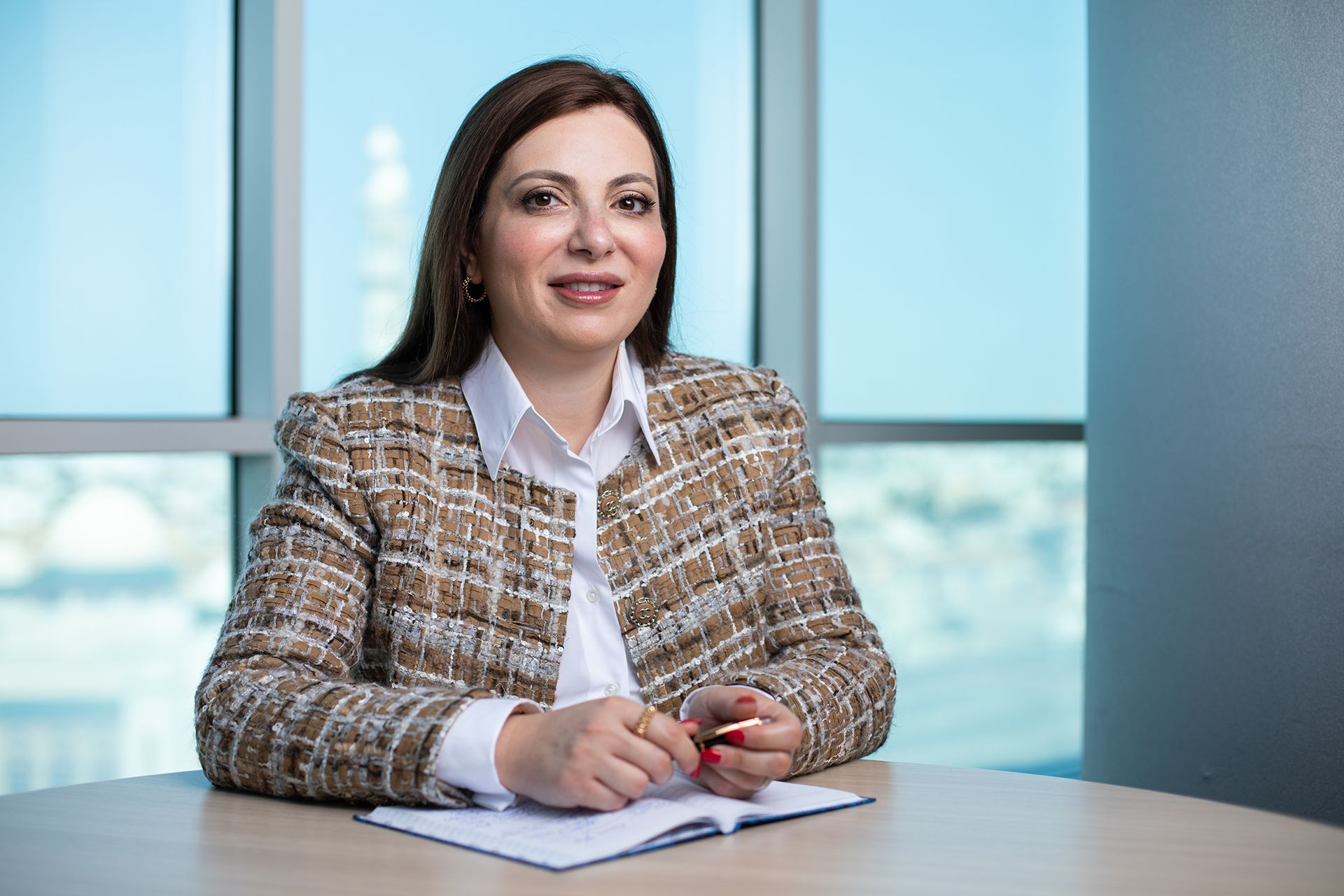
IT’S TRAINING – BUT NOT AS WE KNOW IT
OUR COLLEAGUES DISCUSS THE FUTURE OF TRAINING, THE IMPACT OF THE COVID-19 CRISIS AND WHAT THEY LOVE ABOUT WORKING IN TRAINING SERVICES
HOW WE WORK
What’s driving the demand in virtual training and eLearning?
Jill: We have invested in and developed virtual training and eLearning for our clients. They have looked to reduce their costs and the easiest way to do this is by focusing on the duration of courses and removing the need for travel and accommodation.
How has the Covid-19 crisis affected the trend towards virtual training?
Jill: Since the outbreak of Covid-19, the interest has been much higher, especially with the restrictions on travel. So, where possible throughout the past four months, we have been delivering many of our courses remotely.
Barry: We had pre-empted the evolution of virtual training and had already started developing some of our courses to deliver them through Microsoft Teams. The main courses we are delivering remotely are Offshore Installation Manager (OIM) Legislation, Offshore Safety Representatives, and the Minimum Industry Safety Training. It is proving very popular and delegates like that they can do the training at home.
Graham: We normally do hundreds of emergency response exercises every year. Like Barry, we started using Teams to deliver the theoretical parts of our training and we adapted the practical exercises to ensure responders took away the same learning points.
Michaela: It’s also presented opportunities for us to consider how we can implement efficiencies internally – not just client facing. That’s been a real positive.
How are we continuing to respond to emergencies?
Graham: Traditionally in the event of an emergency we would mobilise to our response centre. Even with Covid-19 you have to be able to respond to an emergency while in a crisis. You still have emergencies offshore and our clients still have a duty of care. The centre has never stopped being ready to deal with emergency calls. While we can still go to the centre, we’ve done a lot of work to enhance our capability to respond remotely and we now have our own virtual centres where we can all respond from home. Our team has made lots of changes to the software used and we’ve essentially recreated everything we would see in the control room on our home computer screens. We engaged with our clients from the outset and they have been reassured by the changes we’ve put in place, many of which will continue beyond Covid.
BARRY CHRISTIE
Safety and Survival Manager
Barry works at our HSE Survival Marine Centre at Altens, Aberdeen and delivers training courses. He has been training delegates for the past 30 years.

TIEMEN VAN DER LINDEN
Technology Solutions Operations Manager
Tiemen leads our Technology Solutions service line which includes a vast library of eLearning courses and our learning and competency platform, SkillsVX, as well as the Training Management Services team in Montrose. He is based in Holland.


GRAHAM BROWN
Crisis & Response Manager
Graham has been working in crisis management for nearly 30 years and is based in Aberdeen.
WHO’S WHO?

JILL OGILVIE
Training Services Business Development and Customer Care Manager
Jill was Training Management Services and Customer Manager until earlier this year when she was promoted to Business Development and Customer Care Manager. She is based in Aberdeen.

MICHAELA NICHOLSON
Training Management Services Manager
Michaela recently moved into this role from the Emergency Response Service Centre where she was Team Leader. She is based in Aberdeen.
WORDS CHRISTINA McPHERSON
PUBLISHED SEPTEMBER 2020
What’s changed at our training centres and the Emergency Response Service Centre (ERSC)?
Barry: With social distancing we’ve reduced class sizes due to the nature of the practical exercises. We’ve also introduced other measures, including a one-way system in the facility, social distancing in classrooms, and wearing masks.
Michaela: Safety has been a priority. We’re confident and comfortable with the measures we have put in place.
Graham: As I mentioned, we are still able to attend the ERSC if needs be. We could not train and practise the responses while maintaining the centre in its sanitised state, so we are holding it for real emergencies. We had a two-day emergency callout recently where we responded to the ERSC on behalf of one client under our social distancing protocols, with a second client’s team joining in virtually.
Kitchen or classroom – what’s easier?
Barry: Some of my team prefer coming in, whereas one of my instructors alternates between the two. A lot of it is down to the individual. Some of the older generation in my team were nervous about delivering training via Teams, but everyone has adapted very quickly.
Graham: We never envisioned being in a situation like this. We had business continuity plans for not getting into the centre for a few weeks, but not six months. In just two months we’ve completely honed and polished the system, and we are now able to do our jobs from the kitchen table.
How will training and eLearning evolve in the future?
Barry: Virtual training will continue after Covid-19 – dependent on the governing bodies which set the standards. I think simulators will play a role too – an example would be using crane simulators for training people. However, there will always be a need for real-life training.
Tiemen: I think virtual reality and augmented reality will play a role. Ten years from now wearables like Google Glasses will be normal – a delegate will be at home, but training in a virtual scenario with students and teachers while wearing the glasses, it will feel like they are in the room. The practical elements will never go away as delegates need practical experience. But training will feel like a more immersive experience. The simulators Barry mentioned will play a big part in minimising travel as well as any risk.
Michaela: The Training Management Services team is also responsible for managing training in Petrofac. We make sure colleagues are compliant with their training, so come to us with your ideas about what you’d like to see in the future.
Graham: I think we will have a blended response in the future. A lot of clients traditionally had to have someone in Aberdeen and come to the emergency response centre within an hour, but now we are responding virtually as we would in the centre. It’s a real gamechanger and we have overseas operators asking if we can coordinate their response virtually. For example, we are now doing the response for a client for all of their eastern hemisphere’s assets. So, Covid-19 has allowed us to expand our services to companies outside of Aberdeen.
TIEMEN VAN DER LINDEN
Technology Solutions Operations Manager
Tiemen leads our Technology Solutions service line which includes a vast library of eLearning courses and our learning and competency platform, SkillsVX, as well as the Training Management Services team in Montrose. He is based in Holland.


JILL OGILVIE
Training Services Business Development and Customer Care Manager
Jill was Training Management Services and Customer Manager until earlier this year when she was promoted to Business Development and Customer Care Manager. She is based in Aberdeen.
WHO’S WHO?
BARRY CHRISTIE
Safety and Survival Manager
Barry works at our HSE Survival Marine Centre at Altens, Aberdeen and delivers training courses. He has been training delegates for the past 30 years.


MICHAELA NICHOLSON
Training Management Services Manager
Michaela recently moved into this role from the Emergency Response Service Centre where she was Team Leader. She is based in Aberdeen.

GRAHAM BROWN
Crisis and Response Manager
Graham has been working in crisis management for nearly 30 years and is based in Aberdeen.


Delegates taking part in offshore survival training
Petrofac’s offshore survival training
“We are now able to do our jobs from the kitchen table.”
Graham Brown
What do you find most rewarding from working in this area of the business?
Barry: When I read the feedback from delegates and we can see they have learned a new skill or gained new information. They always praise the professionalism of staff, which makes me really proud.
Jill: The feedback we receive from our clients. Seeing compliance increase and seeing the success of the team – that is also a contributing factor to how positive their experience is.
Michaela: It’s the same for me. I also enjoy seeing a project through from start to finish and then getting recognition for the team and the hard work they have put in. Also, knowing that you are helping to make sure a delegate can do their job at the end of the day. If requirements aren’t met, it could have a detrimental impact on their next rotation or job offshore. So, making sure there are no bumps along the way is a good feeling.
Tiemen: It’s great when clients have that ‘wow’ feeling when using your product. They feel it’s an efficient way of working, or they see metrics they have never been able to see before and they can optimise their business. For me, that feels like a project well done.
Graham: Our team have a real sense of ownership and passion for what we do – the most rewarding part is when you see client responders have that realisation and understand what they are doing. It’s difficult and it’s often not their day job – so we can give them that assurance.
What’s the key lesson you’ll take away from this year?
Jill: The market is changing. It will probably never be the same and we have to keep adapting.
Graham: We have more direct and personable contact with colleagues and clients now – speaking to them away from their normal work environment. On a personal level it’s broken down a lot of pretence and led to more open and honest conversations.
Tiemen: Working from home works and it can make us more efficient.
Barry: With training, we are moving with the times. When I started 30 years ago, we used overhead projectors. If you said to me 30 years ago, we’d be having a conversation like this on Teams, I’d imagined it was on Star Trek.
FIVE THINGS YOU NEED TO KNOW ABOUT TRAINING AND CRISIS MANAGEMENT
5
4
3
2
1

Petrofac has the broadest range of up-to-date energy industry training. In the UK, we provide practical training at our centres in Montrose and Aberdeen. Remote courses are also led by highly experienced instructors, delivering the same content as would be the case in a physical classroom setting.
Petrofac has an extensive eLearning library that allows delegates to study at their own pace, with more than 200 courses covering HSSE, technical training, engineering, construction, operations, maintenance and soft skills.
A competency management software suite, SkillsVX, has been developed to support industry regulatory requirements and meet the specific challenges of managing an on and offshore workforce. It enables the creation of training matrices and helps businesses co-ordinate the required mix of skills and competencies across their organisation and individual assets.
SkillsVX has so far facilitated 100,000 users worldwide, enabling the delivery of over 250,000 eLearning courses, 40,000 course bookings and the completion of 70,000 paperless assessments this year.
Petrofac’s Emergency Response Service Centre (ERSC) provides response facilities and onshore personnel support to energy companies in the event of an emergency. The team also delivers training to client responders and ensures they are ready to respond to an emergency through verification exercises. Both the emergency response services and training can be delivered virtually.

